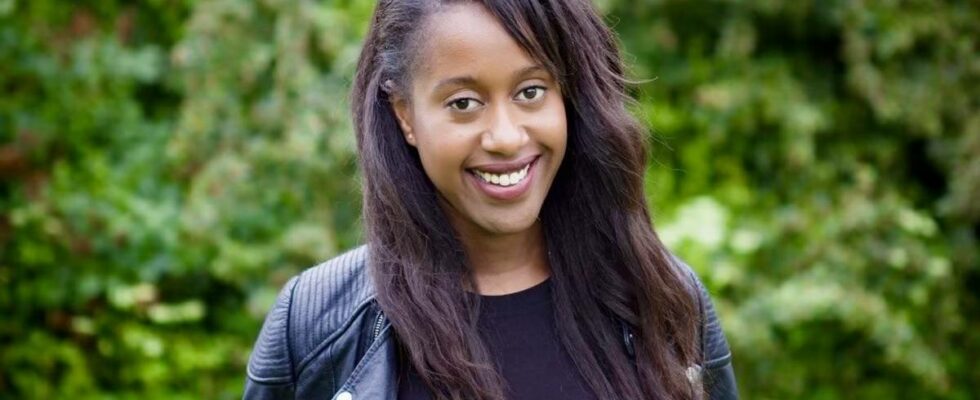Penny Wayne Claire Kembba is 33 years old and lives in Oslo, and a journalist at news. She took her first fertility check at 28. Because as a child she had made a plan to get married and have children by the time she turned 30, but that didn’t happen, because life happened and Kembba wanted to prioritize work and travelling. Today she is happy that she took the fertility test. – They found out that everything looked good. But that was also how I found out that several women in the family had reached menopause early and had what is called early ovarian failure. Thus, I was also in danger of getting it. Kembba believes that fertility should be part of the curriculum at school. – Then I could have had a better idea from the start, says the 33-year-old. She tells her story in the podcast “Should have been the syllabus” on news Radio. Running out of eggs Anne Marte Valset Vaarlund is a specialist in obstetrics and women’s diseases, and works at the private clinic Volvat Spiren. She says that there is one thing you must know if you are a woman and want to have children: Something happens to your fertility from the age of 35 onwards. – A good idea might be to have your egg reserves checked in your late 20s and early 30s, says Vaarlund. Photo: Volvat Spiren Oslo The doctor explains that you can find out if you are within the average for your age or if you have a poorer time to have children. This is done, among other things, with a blood test that says something about how many eggs you have in your ovaries. – We regularly experience that relatively young women of fine, fertile age need help with IVF treatment. And then they have essentially run out of eggs already. This picture shows how assisted fertilization takes place. This is how you can help the involuntarily childless to become parents. Photo: Gorm Kallestad / NTB scanpix Skeptical Then one option for having children is to use egg donation. She says that the blood test cannot tell how easy it is to get pregnant then and there, but that it can say something about how long you have eggs left to have the children you want. – Then it might make them say “Okay, but then we don’t want to travel around the world now. Then we may have to start with child number one now, because we want three.” Tilde Broch Østborg works at Stavanger University Hospital and is a specialist in women’s diseases. In addition, she is deputy chair of the Council for Medical Ethics. She believes there is little point in testing fertility in this way. Tilde Broch Østborg is a doctor and deputy chair of the Council for Medical Ethics. Photo: Hanne Høyland / news – False hopes or false despair – You almost have to try to know whether you can have children or not, unless you have congenital conditions or have undergone surgery that makes it impossible, says Østborg. She herself has used test tube treatment to have children. – Such tests can give false hope or false despair: If you want to have children, you should try to have them. Moreover, the reports provide a snapshot, and do not need to say anything about how the situation will be in a few years. Østborg believes that private actors can make good money from such testing. – I think you will find few public actors who have the same position – despite the fact that we have the same specialty and access to scientific literature. At the same time, she emphasizes that private hospitals are free to sell services that they can vouch for. Shouldn’t be about money Vaarlund at Volvat Spiren disagrees that it is the money that makes them have the offer. – We see these patients regularly with us. Our everyday life is marked by women who, at the end of their 30s, regret not having started earlier because it turned out that they did not have as much time as they thought. Østborg says that no one can “count on” having children, but that the majority of women have high fertility throughout their twenties and early thirties. At the same time, 10–15 percent struggle to have children. Listen to other episodes from the podcast “Should have been the syllabus” Chose to freeze eggs A few years after the fertility check, Penny Wayne Claire Kembba chose to freeze eggs. – I want children, but not right now. The plan is to get pregnant in the usual way, but then at least I have a couple of extra cards up my sleeve, she says. The 33-year-old believes that testing one’s own fertility must be up to each individual. But she says she is satisfied with her own decision. – It’s not that I think everyone has to take a fertility test, but if you’re a single woman in your late 20s who has children on your to-do list, I think it’s good to know what options you have. Knowledge is power. – For me, it has given me more peace of mind. Had I not taken a closer look at my own fertility, at worst I could have been infertile in my early thirties. And then without opportunities to take any precautions. Penny Kembba believes fertility should have been something you learned more about at school. Photo: Private Published 08.10.2024, at 17.36
ttn-69
Doctor recommends women in their late 20s to check their eggs – meets strong opposition – news Trøndelag – Local news, TV and radio

